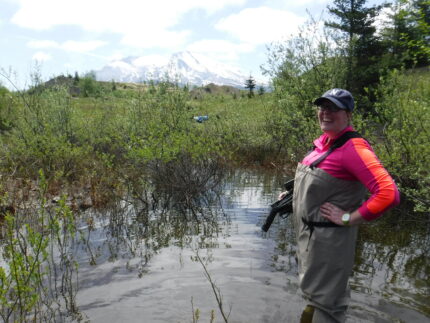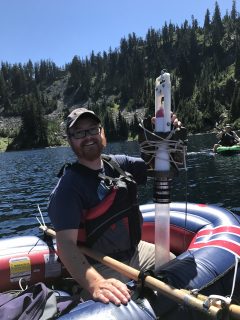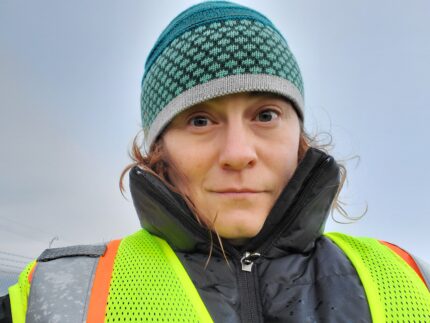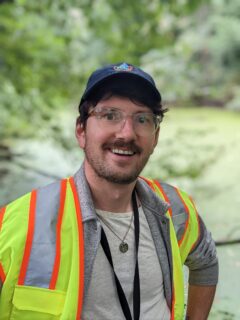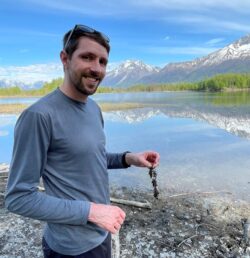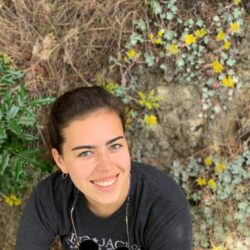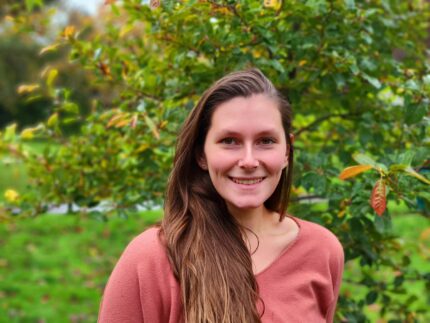Board
2023 -2024 Officers
President Elect: Angela Strecker
President : VACANT
Past President: Matt Colston
Secretary: Marisa Burghdoff
Treasurer: Will Hobbs
2023 -2024 Directors
- Shannon Brattebo
- Tim Clark (Clark)
- Curtis DeGasperi
- Wes Glisson
- Sam Russell
- Ty Stephenson
- Katie Sweeney
- Wafa Tafesh
- Jeremy Walls
2022 – 2023 Committees
BY-LAWS/PUBLIC POLICY AND LEGISLATIVE
Committee Members:
Matt Colston, Cutris DeGasperi, Bradley Roth, Drew Stang
MEMBERSHIP/NOMINATIONS/ELECTIONS
Committee Members:
Jen Oden, Shannon Brattebo, Katie Ruthenberg
COMMUNICATIONS/WEBSITE/SOCIAL MEDIA
Committee Members:
Wafa Tafesh, Drew Stang, Will Hobbs, Bradley Roth
ANNUAL CONFERENCE
Committee Members:
Matt Colston, Jen Oden, Rob Zisette, Shannon Brattebo, Curtis DeGasperi, Jeremy Walls
SCHOLARSHIP
Committee Members:
Jen Oden, Will Hobbs, Jeremy Walls, Angela Strecker, Shannon Brattebo
SPECIAL PROJECTS
Diversity Equity and Inclusion:
Angela Strecker, Katie Ruthenberg, Tim Clark, Jim Gawel, Jay O’Neal, Corianne Klohmann
Western Conference:
Katie Ruthenberg, Wafa Tafesh, Drew Stang, Katie Sweeney, Jim Gawel, Corinne Klohmann
Financial Review:
Will Hobbs, Matt Colston
Invasives Training:
Rob Zisette, Mark Sytsma, Katie Sweeney
OFFICER BIOGRAPHIES
Angela Strecker, President Elect (2023-2026)
Angela Strecker is the Director of the Institute for Watershed Studies and faculty in the Department of Environmental Sciences at Western Washington University. Prior to arriving at WWU, she was faculty in the Department of Environmental Science and Management at Portland State University and Director of the Center for Lakes and Reservoirs. She completed her Bachelor of Science degree with Honours in Biology at the University of Regina and a Ph.D. at Queen’s University in Biology. Her research interests fall into several interconnected categories that revolve around the basic question of what influences biodiversity and ecosystem function at different spatial scales in aquatic systems. To do this, her lab studies anthropogenic stressors in freshwater ecosystems, such as invasive species, climate change, habitat connectivity, and contaminants. Ultimately, this work leads to the question of how ecosystem functions and services may be affected by human activities. In general, she uses the combined approach of field surveys, small-scale and large-scale experiments, and statistical modeling to test hypotheses. She also collaborates with social scientists to better understand complex socio-ecological systems. Angela was a WALPA board director from 2019-2023.

Matt Colston, Past President (2021-2024)
Matt Colston is a Surface Water Quality Specialist and the Lone Lake Algae Control Program Manager. He graduated from the University of Washington with a BS in Biology in 2015 and is currently studying for a Master of Natural Resources at Oregon State University. Island County’s current work in Lone Lake is trying to help provide outreach to the citizens with in the algae management area and help the citizens in the area decide which methods do they want to utilize to minimize CyanoHAB’s. Matt has worked in the onsite sewage program bringing experience from the health department to the natural resources world.
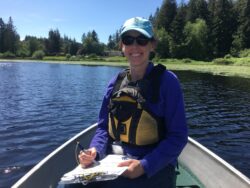 Marisa Burghdoff, Secretary (2023-2025)
Marisa Burghdoff, Secretary (2023-2025)
Marisa is from Snohomish County Department of Conservation and Natural Resources where she leads their lake management program. In this role, she coordinates a volunteer monitoring program, implements lake studies and restoration projects as well as behavior change outreach programs to reduce pollution to lakes. Marisa has a BS in biology from the University of Michigan, Master of Science in Environmental Science/Master of Public Affairs from Indiana University and a Master of Teaching from Western Washington University. Marisa’s love of lakes started in her home state of Michigan (though ironically, she lived in the only county without a lake in the state). Outside of work, she can be found spending time with her three kids, enjoying nature or heading to trivia with her husband.
Will Hobbs, Treasurer (2022-2024)
Will is a senior environmental scientist with the Washington State Department of Ecology, Environmental Assessment Program. He received his B.Sc. in Physical Geography from the University of British Columbia, M.Sc. in Limnology and Environmental Science at the University of Dublin, Ireland, and his PhD in Earth and Atmospheric Sciences at the University of Alberta. Prior to joining Ecology, Will was a research scientist in freshwater and paleo-ecology at the University of Nebraska, University of Minnesota and the Science Museum of Minnesota. His current scientific interests include: diatom ecology, ecological changes in lakes over decadal timescales, cyanotoxins, and the transport and bioaccumulation of toxic chemicals in rivers and lakes. With Ecology, Will works primarily on targeted source identification studies for toxic contaminants in freshwater and oversees the agency’s participation in the National Lakes Assessment with the USEPA.
Shannon has been an environmental engineer and limnologist for Tetra Tech, Inc. in Seattle and Spokane, WA since 1999. Shannon’s work has focused on lake and reservoir water quality, restoration, and management both in the Pacific Northwest and across the nation. Shannon has a B.S. in Civil/Environmental Engineering from Seattle University and an M.S.C.E in Civil/Environmental Engineering from the University of Washington. Shannon has been a member of NALMS since 2001 and is a past board member and secretary of the Washington Lakes Protection Association (WALPA). Shannon is also a past Region 10 NALMS Director (2015 – 2018).
Tim Clark (Clark), Director (2023-2025)
Clark is a limnologist and watershed scientist with Herrera Inc. and has a passion for enacting positive change for the environment and society. He finds a deal of joy in connecting with people to collaborate and generate novel solutions to old problems through systems thinking. Clark likes to backpack, bicycle tour, and explore the wonders of the natural world however and as frequently as he can.
I’ve worked in King County’s Science and Data Management Section for the past 20 years focusing on the quality and quantity of freshwater across the lowlands of Puget Sound. I first became interested in lake water quality and management as an undergraduate fortunate enough to spend two summers helping study Irondequoit Bay (Monroe County, NY) and its associated aquatic plants and wetlands. That initial experience led me to an MS from the University of Washington. My thesis project involved a continuation of a long-term study of the effects of a drawdown and alum treatment of Long Lake (Kitsap County, WA). Next, I worked on reforestation projects and water quality issues associated with Lake Chichoj as a Peace Corps volunteer in Guatemala. Before joining King County, I worked at various environmental consulting firms in the Seattle area. I also taught environmental science classes at Clover Park Technical College and Green River Community College.
Wes Glisson, Director (2023-2025)
Wes is the aquatic plant specialist for the Washington State Department of Ecology. He has a BS in Biological Sciences from Northern Illinois University and an MS in Plant Biology and Conservation from Northwestern University. Before working for the Department of Ecology, Wes was a researcher for the Chicago Botanic Garden, the University of Idaho, and most recently, the University of Minnesota’s Aquatic Invasive Species Research Center. His research has focused on the biology, ecology, and management of invasive aquatic plants. At the Department of Ecology, Wes conducts monitoring of freshwater aquatic plants throughout Washington and provides technical assistance for invasive aquatic plant management.
Corinne Klohmann, Director (2022-2024)
Corinne Klohmann is an aquatic ecologist with 5 years of experience in freshwater and marine ecology, water quality, and natural resource management. Her experience spans from freshwater lakes in upstate New York to marine environments in Washington. Corinne has led and supported numerous studies focused on coastal habitat monitoring and water quality testing. She is skilled in R, statistical analysis, project management, study design and implementation, and a range of field sampling techniques. Corinne received her master’s degree in Aquatic and Fisheries Sciences with a focus in disease ecology and a certificate in One Health from the University of Washington. She also holds a bachelor’s degree in Environmental Sciences from Cornell University. Corinne is based in Seattle, and you can find her hiking, skiing, or exploring the PNW with her partner and pup.
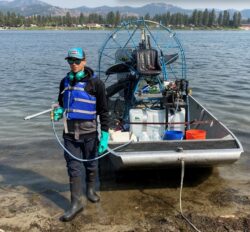 Bradley Roth, Director (2022-2024)
Bradley Roth, Director (2022-2024)
Bradley Roth is an Aquatic Biologist and the Eastern Washington/North Idaho Regional Manager with Aquatechnex. Bradley manages the implementation of invasive and noxious weed control projects as well as algae control and water quality improvement projects. Aquatechnex specializes in Eurasian Watermilfoil management, Phosphorus sequestration projects as well as the control of many other aquatic invasive plants. To accomplish these specializations, Bradley uses his expertise in aquatic pesticide application, aquatic plant surveying, geographic information system technologies, sample collection, and data analysis. He works on everything from 1-acre ponds, to 100,000+ acre lake and river systems, conducting contractor work for Federal, State, and County agencies as well as various Lake Association/HOA groups. He holds aquatic pesticide applicator licenses in Washington, Idaho, Oregon, Montana, and Utah, working on many diverse lakes throughout these states. Bradley earned a B.S. degree in Environmental Science and GIS from Washington State University. Bradley started his lake management career in 2019 as an aquatic biologist with Aquatechnex and is currently based out of Spokane Valley, WA. In his free time, Bradley enjoys skiing, backpacking, road tripping, and traveling to new places.
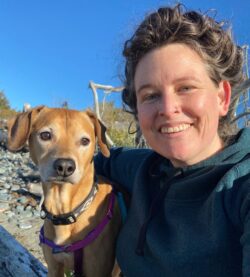 Sam Russell, Director (2023-2025)
Sam Russell, Director (2023-2025)
Sam is an Environmental Health Specialist with Skagit County Environmental Health Department. Her work focuses on On-Site Sewage systems, water quality, recreational shellfish biotoxins, cyanobacteria blooms, outreach and education. She graduated from Western Washington University’s College of the Environment with a B.Sc. in Environmental Science, Marine Ecology and then spent three years as a Peace Corps Volunteer in a rural Melanesian village focusing on integrated environmental resource management, or a “ridge to reef” approach to ecosystem interaction. Those three years formed a foundation for understanding and improving individuals’ interactions with and within their natural and built environments and has kept her passionate about environmental health issues both locally and globally. Outside of work, Sam can be found officiating weddings, hiking, camping, mushroom hunting, snowshoeing or kayaking with her dog.
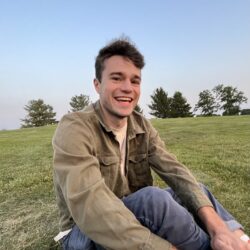 Ty Stephenson, Student Director (2023-2025)
Ty Stephenson, Student Director (2023-2025)
Ty is a graduate research assistant in the Strecker lab examining spatial and temporal trends in macroinvertebrate communities and water quality in aquatic ecosystems in the North Coast and Cascades Network. Ty grew up in Blacksburg, Virginia and quickly took interest in the aquatic communities inhabiting the Appalachian streams. He has been involved in a wide variety of aquatic ecology research projects, including studying the effects of coal mining contaminants on freshwater mussels, the distribution of the threatened bog turtle, community and behavioral ecology of bluehead chubs and their nesting associates, and the long-term changes in the fish community in Blacksburg’s local streams. Ty was also the Vice President of Virginia Tech’s student chapter of the American Fisheries Society. He worked for trout unlimited studying how native trout populations respond to habitat enhancement projects, and the Wyoming Game and Fish Department’s Aquatic Assessment Crew studying fish, toad, and snake populations across Wyoming. Most recently, he spent time working for the West Virginia Department of Environmental Protection’s Watershed Assessment Branch conducting stream assessments. Ty is motivated by learning about how environmental changes, anthropogenic or otherwise affect aquatic environments and their biotic communities.
Katie Sweeney, Director (2023-2025)
Katie Sweeney is an Environmental Scientist at Herrera Environmental Consultants in Portland, OR where she works on various water quality, stormwater and lake management projects. She was born and raised in upstate New York, where she spent her time romping around swamps, woods, meadows and lakeshores, asking “why?”. Katie has a BA in Environmental Studies with a minor in Sustainability from Wells College, which led to a rewarding diversity of ecological work experiences. Katie quickly found a passion for aquatic sciences which included work in limnology, education, wastewater, and fish culture. She found her way west and in 2021 earned her M.S. in Environmental Science from Washington State University- Vancouver, defending her work on the trophic roles of micro-zooplankton during a cyanobacteria bloom in Vancouver Lake. In her free time, Katie lives for snuggles and playtime with her dog Delta, as well as crafting and baking.
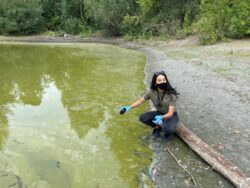 Wafa Tafesh, Director (2021-2024)
Wafa Tafesh, Director (2021-2024)
Wafa is a University of Washington graduate and has worked on various projects focused on environmental public health. She began her career as an intern with the Seattle non-profit, The Duwamish River Cleanup Coalition, hosting Rain2River walks in Seattle’s neighborhoods. Since then she has worked with the Washington Department of Health as a field sampler (oysters) during the Vibrio parahaemolyticus season and as Technical Program Advisor for the Office of Drinking Water. She has worked with Recology Cleanscapes managing stormwater and hazardous waste compliance. Most recently, she acted as a Health and Environmental Investigator in King County’s Hazardous Waste Management Program. Wafa currently works with King County’s Department of Natural Resources and Parks as a Water Quality Planner. Her work includes water quality sampling, managing water quality data, conducting quality assurance reviews, and assisting with report writing. She supports the Lake Stewardship Program, toxic algae response team, and lake swimming beach bacteria monitoring program.
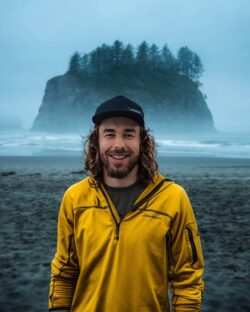 Jeremy Walls, Director (2023-2025)
Jeremy Walls, Director (2023-2025)
Jeremy is an aquatic scientist with the King County Department of Natural Resources and Parks. His work includes performing data analysis and quality control for the streams monitoring program and conducting microbial source tracking studies with the Pollution Identification and Correction (PIC) program to find and fix fecal pollution sources. Jeremy earned his BS and MS in biology from Ball State University, researching physicochemical drivers of cyanobacterial harmful algal bloom (cHAB) severity and toxicity. Prior to working for King County, he worked for the Ohio Department of Natural Resources to monitor cHABs in public waters. Additionally, he worked as an aquatic scientist for the Texas Commission on Environmental Quality to develop and implement water quality standards for surface waters. Outside of work, Jeremy enjoys kayaking, rock climbing, and backpacking.

